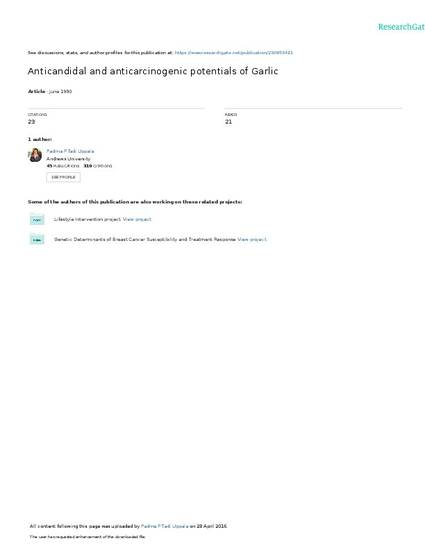
Article
Anticandidal and anticarcinogenic potentials of Garlic
International Clinical Nutrition Review
(1990)
Abstract
Epidemiological studies have revealed an inverse relationship between garlic consumption and death rate for stomach cancer in populations in China. These reports suggest a role for garlic in the prevention of human cancer. Garlic has been shown to inhibit the growth of transplantable tumours and to reduce the incidence of certain spontaneously-occurring tumours. Organosulphur compounds of garlic have also been found to inhibit the activity of diverse chemical carcinogens during both the initiation and promotion phases of carcinogenesis. There is additional evidence that components of garlic modulate specific and nonspecific antitumour immunity. Recent literature suggests that a wide range of mechanisms are available to account for the biological activities of garlic.
In the present paper, we report two recent studies using a commercially available garlic extract (Kyolic): 1) Control of systemic Candida albicans in mice, and 2) Inhibition of mutagenesis and DNA binding in vitro. These results provide additional evidence suggesting that garlic may be a dietary anticarcinogen.
Disciplines
Publication Date
October, 1990
Citation Information
Padma P Tadi Uppala. "Anticandidal and anticarcinogenic potentials of Garlic" International Clinical Nutrition Review Vol. 10 Iss. 4 (1990) p. 423 - 429 Available at: http://works.bepress.com/padmaptadiuppala/27/
